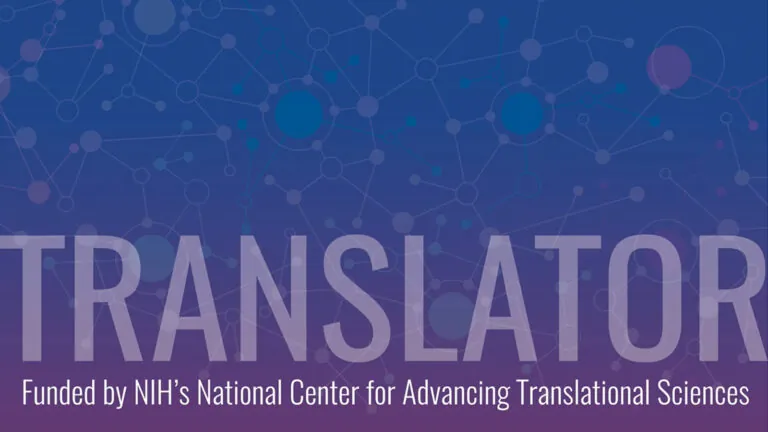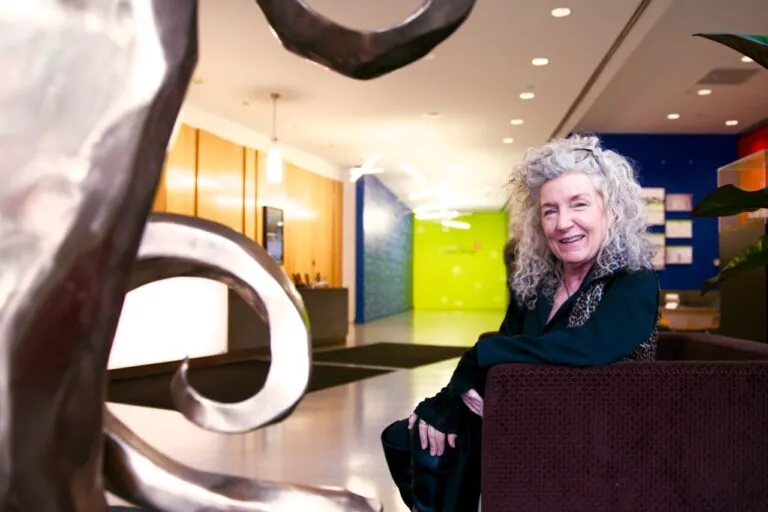Dr. Robert Moritz Promoted to Professor
Moritz, who joined ISB as associate professor in 2006, was promoted to full professor in 2015. ISB Co-founder Dr. Lee Hood announced the promotion.

A message from…
By Dr. Lee Hood
President, Institute for Systems Biology
As most of you know, Rob Moritz has recently been promoted to full professor at ISB—a promotion long overdue. As long as I have known Rob, he has always done things without fuss, but this time we will toast him for his achievement. He also wants to credit the efforts of his group for their significant contributions that make ISB a success.
When ISB was founded in 2000, we made a major commitment to developing systems-biology relevant technologies. Because Ruedi Aebersold, a pioneer in mass-spectrometry-based proteomics, was a co-founder, this area became one of ISB’s major success stories in technology development. When Ruedi decided to move to the ETH in Switzerland in 2006, ISB began the search for his successor. We were very fortunate to identify Rob Moritz as a worthy successor—and he came to the ISB as an Associate Professor and Research Director of Proteomics.
Rob got his B.S. and PhD at the Department of Biochemistry and Molecular Biology at the University of Melbourne. Rob initiated his scientific career in 1983 at the Ludwig Institute for Cancer Research, Melbourne, Australia. He was promoted to Director of Proteomics, where he designed and implemented a number of technologies currently used in many proteomics laboratories across the world. His research interests in proteomics include the discovery of normal and disease markers using targeted quantitative mass spectrometry and the quantification of protein detection and protein modifications.
In 2008 he moved to ISB to continue over the past seven years to pioneer ISB’s leadership role in mass spectrometry-based proteomics. Rob’s accomplishments in proteomics are many and significant:
- He took on the management of ISB’s large and diverse mass -spectrometry facility—making protein-based mass spectrometry available to all at ISB.
- He immediately began pioneering new mass-spectrometry -based applications—exploring new approaches to quantifying post-translational modifications and identifying biomarkers for prostate and colon cancers as well as glioblastomas.
- He took on responsibility for managing ISB’s outstanding computational proteomics group—and this group under Rob has continued to improve old software and pioneer new software—advancing the protein atlas software as well as the Trans Proteomic Pipeline. Rob is also pioneering the computational proteomics required for SWATH mass spectrometry—which is discussed below.
- Rob and Ruedi together pioneered targeted mass spectrometry—selective monitor reactions (SRM)— and they were recognized by Nature when targeted mass spectrometry was selected as Nature’s technology of the year for 2012.
- Under funding made possible by Obama with his stimulus program—Rob undertook the enormous challenge of creating SRM assays for all human (and for the proteomes of several other animal and bacterial species)—and this lead to the creation of the SMRAtlas—an outstanding achievement for the proteomics community.
- SWATH mass spectrometry provides the attractive possibility of making mass spectrometry a global search technique—that is, giving us the ability to quantify many proteins (thousands) at one time—an opportunity that is critical to systems biology. Rob is undertaking both the applications and computational challenges of SWATH mass spectrometry.
- Rob has continued pursuing his interest in biomarkers for tuberculosis, type 2 diabetes, diabetic kidney disease and glioblastomas. He has also continued to push the characterization of various types of protein modifications.
Rob has played an important roles in HUPO—the Human Proteome Organization—a worldwide organization that is attacking quantification of the human proteome on a chromosome-by-chromosome basis.
Rob has been an active partner in helping ISB with strategic partnerships—with pharma, other companies, foundations and academic organizations. Rob is appropriately critical and thoughtful about both new approaches in science and new approach for ISB to further its goals. I should emphasize that Rob is one of the hardest workers at ISB—I trait I value extremely highly.
Rob is still intimately involved in his science as reflect by the following quote from his 2012 self-evaluation. “I am still extremely interested in hands on discovery, a position I was in when I first started my science career just on 30 years ago. The excitement in discovering new components of cellular function is what makes my research fun and engaging and it is these types of experiences I like to foster in my group.”
This attitude is what makes Rob a wonderful ISB citizen, colleague, scientist and technology pioneer. Congratulations, Rob, for a promotion well deserved! Your future is wonderfully bright.


